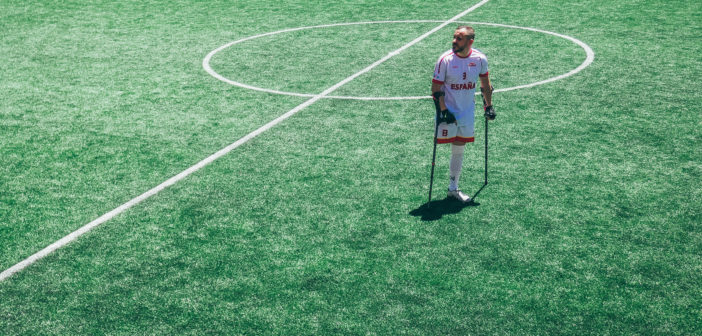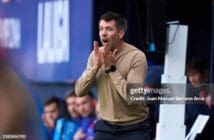Ask most footballers about how their passion for the game started, and they will tell you something like, “When I was a child, my parents gave me a ball as a kid, and I never let it go ever since.”
Simple, isn’t it? Just a round-shaped object you could endlessly kick and have fun with. Eventually, you’d grow, display some impressive skills, and fight your way to the top. Maybe your team would make it to the first league.
Maybe you’d become a regular starting XI player. Maybe you’d end up earning a huge salary. Maybe you’d end up playing for one of the biggest teams in the world.
All it took was talent, hard work, and opportunity.
Take any element out of the equation, and your destiny as a footballer would change dramatically. Take out the talent, and you’ll only be known as a workhorse—reliable, but not quite world-class. Take hard work out, and you’ll be known as the kid who had shown so much potential, but could never quite live up to the hype. But what happens if you take out the opportunity? You’ll be the best footballer that no one ever got to know.
Okay, now let’s up the ante. What if besides a lack of opportunity, you are also working your way through a physical or mental disability? What if all the odds in the world are against you?
How can you keep doing what you love? Here is the thing though: opportunities are discriminatory; talent isn’t.

Talent doesn’t care if you are blind, if you are missing a limb, if you have cerebral palsy, if you have hearing problems, or if you’re in a wheelchair. It finds a way to shine through this mountain of obstacles that was put in front of you.
When I was in Madrid in 2019, I had the honor to assist at an exhibition match where stars like Figo or Cafu played against members of the Spanish Amputee Football Federation.
Seeing those people in crutches didn’t make me once feel sorry for them, because my admiration for what they do trumped that.
There isn’t a worse feeling in the world than pity because pity means liking someone for something tragic that happened to them and not for what they truly are and represent as people. Seeing the way they played, dribbled, and even how they performed trick shots had me in awe. Life put a wall in front of them and they just jumped over it, in one leg, not letting anything get in the way of playing the sport they loved.
This is a testament to the strength of the human spirit who conquers the body’s limitations.
A human spirit who doesn’t know the meaning of “YOU WILL NEVER BE A FOOTBALLER.”
They don’t get the exposure they deserve, because they are the real GOATs.
We hear so many stories about footballers who fear their careers will be over after a knee surgery or a ligament tear, and yet, for these people, their careers were deemed over before they even started.
If you want to get an idea of how crazy talented these people are, let me tell you that I’ve volunteered to shoot a blindfolded penalty.
How this goes is that a helper will use a small piece of metal to cling the left and right-side posts of the goal, so that you can get a sense of the space and dimension based on sound.
Then, you have the ball placed at the spot; you get to feel it, then move away from it, so that your shot can gain power. Then, when you’re ready, you just signal it to the referee, shoot, and hope for the best.
They are basically superheroes, because the lack of one sense heightens the others. Well, that didn’t work for me though. The good news was, literally every single volunteer before me missed.
Some even missed hitting the ball itself because being blindfolded had them failing to walk in a straight line until the penalty spot. So my tactic was that even if I don’t score, at least I should try to hit the ball. It was an absolute atrocious shot, but do I even need to say that every single player who was actually blind managed to score?
The event was labeled as #EqualGame, which unfortunately, still sounds like a utopic concept to me.
In a sport plagued with racism, sexism, ableism, and xenophobia, football will never be equal until these players are seen and we know their names. There will never be equal chances as long as highlighting these athletes is more of an afterthought rather than a true desire to give them center stage. It’s up to us to break those barriers of prejudice.
Article and pictures courtesy of Alexandra Fechete
![Prost International [PINT]](https://prostinternational.com/wp-content/uploads/2021/08/PINTtFontLogoRoboto1536x78.jpg)



